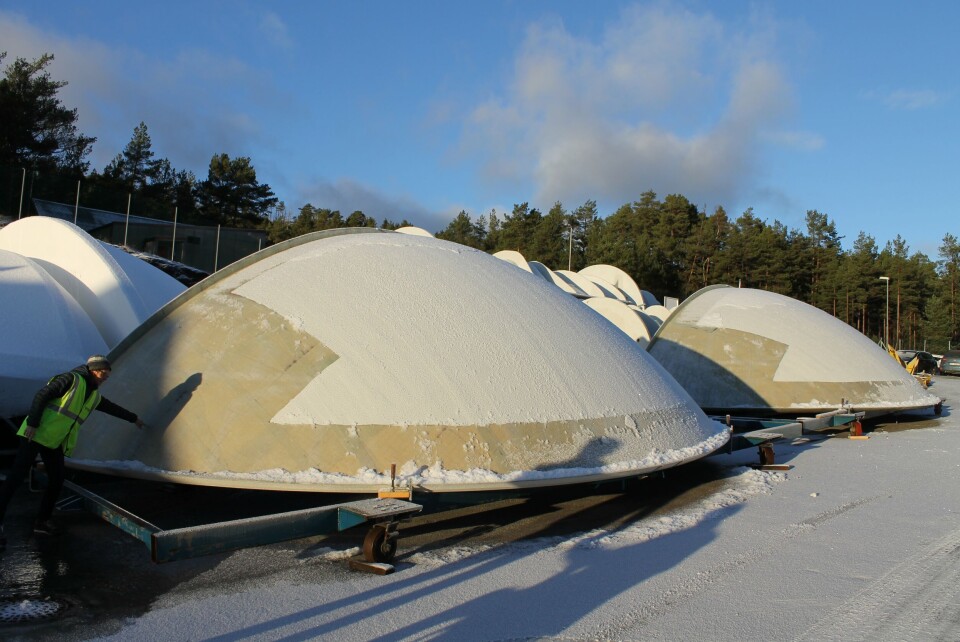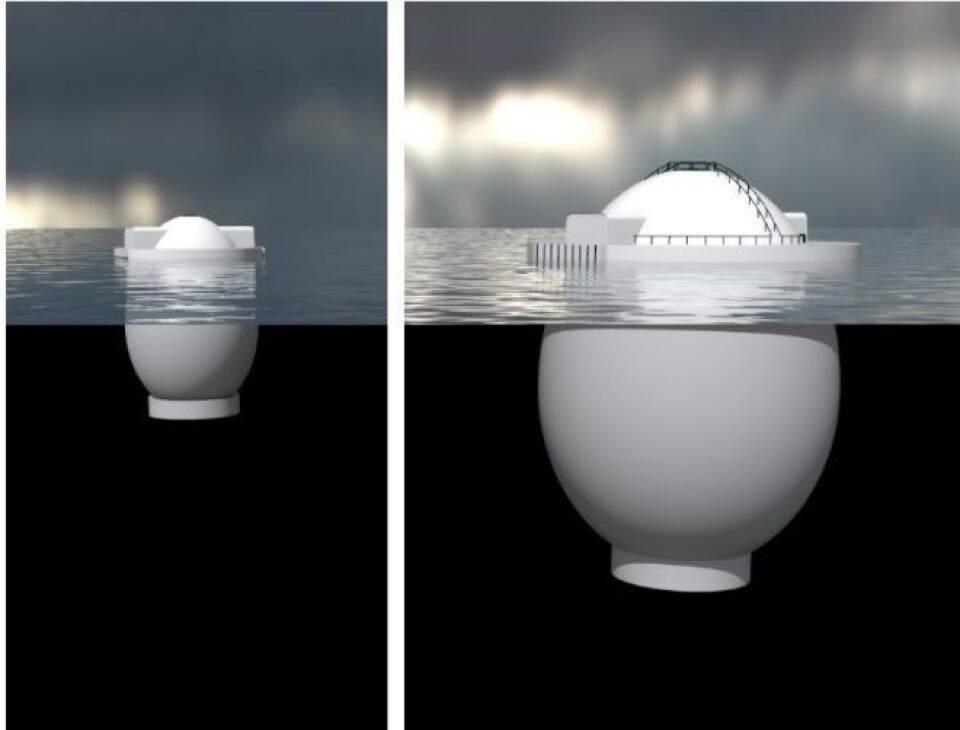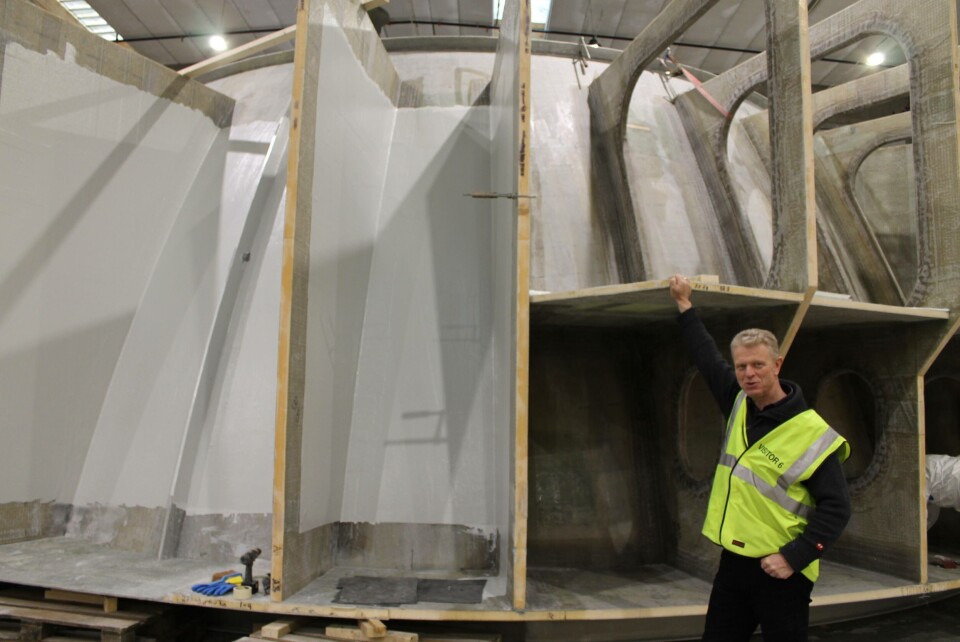
The MiniEgg will be delivered for Easter
The Egg floating closed containment salmon farm being built for the Christian company Hauge Aqua will, appropriately, be finished and delivered by Easter.
Five months ago, the first casting of the Egg E2000 was started at Herde Kompositt in Ølve, a village south of Bergen in western Norway. The concept is an egg-shaped closed fish farm with flow-through technology, where the water is pumped in from the bottom, set in motion and filtered before it is released.
Despite this first version being called the “MiniEgg”, there is nothing mini about the parts of Egg that could be seen scattered throughout the large sheds at Ølve when Herde Kompositt gave a tour to Fish Farming Expert’s Norwegian sister site Kyst.no. Several of the parts are now being prepared for assembly, and on the tour around the construction hall the sanding machines were running hard.

On schedule
According to general manager Kim Røssland, everything is on schedule for delivery before Easter 2022.
“We have good employees who work on and ensure that the project keeps to the schedule,” he added.
Arvid Skogseide is the project manager for the Egg, known to the employees as the egg-manager. He showed Kyst.no and the board of Hauge Aqua around the dome of the Egg which he said is built in sandwich composite, a material that is well proven after many years of use in boat and aircraft hulls, as well as in a number of other constructions that must withstand high loads over time.
As strong as steel
Composite is as strong as steel, as light as aluminium and the flexibility of the material offers great possibilities in the design.
Skogseide enthusiastically explained how the egg has been built layer by layer.
“We specialise in the combination of fibreglass, polyester / vinyl ester and sandwich (material). In this production method, we take advantage of the formability of the polyester and the stiffness and strength of the glass. The sandwich material provides additional strength with little weight gain,” said Skogseide.
The sandwich core itself, he said, is closed cells and completely tight.
“We usually build things that should look nice on the outside, but here the inside must also be nice. The inside of the egg where the fish swims will have a smooth, polished inside that is white and light-reflecting for the fish,” he added.

Staying in the fjords
The Egg will collect fish faeces and prevent escapes, and because it keeps out lice it won’t provide a ready supply of salmon to enable the parasite population to increase. As such, Hauge Aqua hopes the Egg will allow salmon farming to continue inside the shelter of the fjords, as well as shortening the time the salmon stays in open facilities at sea.
The company is now working hard to get a more efficient production, and Hauge Aqua boss Cato Lyngøy said it is important to get more eggs in a series.
“The plan is that there will be many more such eggs along the coast eventually. It comes with rationalisation and alignment of our work processes,” he said.
Everything built in
Lyngøy pointed out that the MiniEgg will have all the technology built on board, but the larger Egg will have most of the functions remotely controlled. The MiniEgget is produced to be as autonomous as possible.
Among other things, feed tanks and control systems are incorporated in the collar around the upper part of the Egg and around the entrance portals. A power cable will connect the device to shore power.
Hauge Aqua builds on resources, ideas, and knowledge from the Christian belief in Creation.
“Through this the company wishes to glorify The Creator by showing good stewardship over these gifts. The goal is to use them in a fashion so that we may develop, manufacture and trade, wholesome, safe and competitive products,” the company says on its website.
Hauge Aqua founded a subsidiary, Hauge Aqua Farming AS (HAF), in October 2018 to develop a so-called “dark green” salmon farming permit granted by the state, which comes with strict environmental conditions. HAF will operate the Egg.
HAF has filed three applications for salmon farming sites in Romsdalsfjorden, north of Ålesund. One of these has been granted and the other two are still in process.






















































